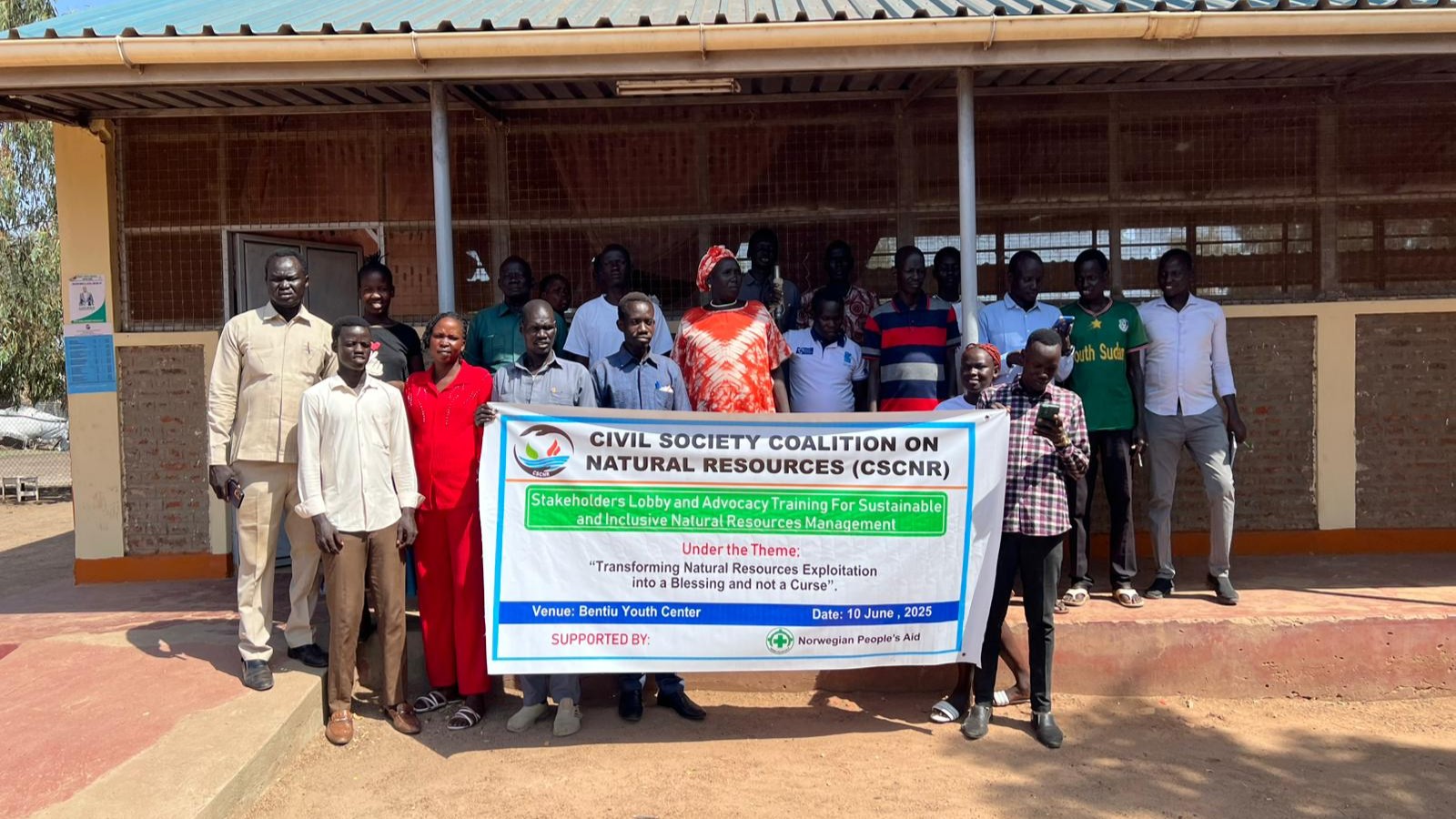Unity State community leaders demand accountability in oil revenue management


The call came at the closing of a one-day lobby and advocacy training of community leaders on sustainable natural resources management organised by the Civil Society Coalition on Natural Resources (CSCNR).
Speaking at the event, Kom Mathew, a community leader from Mayom County, decried the absence of transparency, accountability and equity in the distribution of resources in Unity State.
“The 3% Net Petroleum Revenue provided for by the Petroleum Revenue Management Act 2013 is a lot of money. The state needs good schools, hospitals, roads and clean drinking water. If this money is to flow to the Community Development Committee (CDC), distributed equitably according to the law, managed transparently and accountably, Unity State can be one of the most developed states in the country,” Kom said.
“But this is not happening, we are not seeing tangible developments in the seven (7) counties of Unity State, financed by the revenue from oil. We, the communities, are demanding reforms so that we can benefit from the resources in our state,” Kom added.
Gizam Moses, the Programme Officer of CSCNR, said the coalition organised the training to equip grassroots leaders with relevant knowledge and skills for proactive lobbying and advocacy towards strengthening engagements between the government, corporate entities and the communities.
“It is the right of the people of this state to benefit from natural resources exploitation in their localities,” he said in a statement seen by .
“They have inherent rights to a toxin-free environment, corporate social responsibility and community-driven development funded by their legal entitlement in the Petroleum Revenue Management Act 2013,” he added.
The organisation noted that the above cannot be realised if oil production and revenue distribution deviate from legal provisions.
In July 2023, the South Sudan’s National Legislative Assembly, in a move aimed at addressing concerns over the management of oil revenues, directed the then Minister of Finance and Planning, Dier Tong Ngor, to suspend the transfers of the 3% oil share to Unity state until Community Development Committees (CDCs) are established amid uncertainty about the proper allocation and utilization of the 3% oil share.
Under the South Sudan Petroleum Management Act of 2013, regions with active oil production, including Unity state, are entitled to receive a share of the Net Petroleum Revenue. Unity, Upper Nile states, and Ruweng Administrative Area are to be allocated two per cent and three per cent shares, respectively, with the funds intended to directly benefit the oil-producing areas and communities living near the oilfields.
sudanspost.com